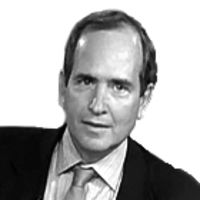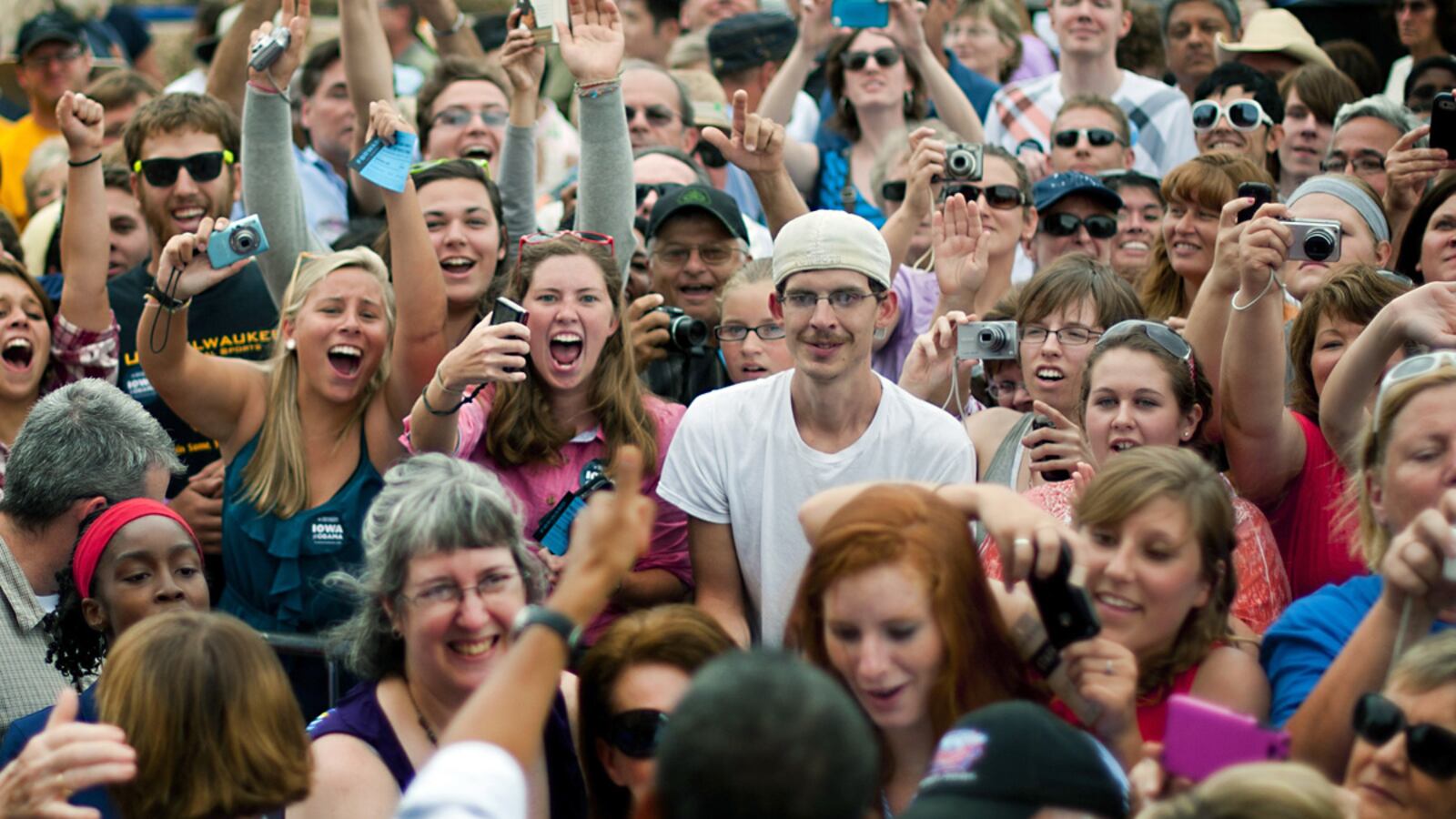Skeptics might urge that the theme for both presidential campaigns be yanked from Cabaret, when the master of ceremonies (Joel Grey) regales Sally Bowles (Liza Minnelli) with, “Money makes the world go around, the world go around, the world go around.”

“Money, money, money, money, money, money” is the chorus.
But is it really what will determine whether President Obama or Mitt Romney wins?
Tracked down at a recent Chicago White Sox game, Obama strategist David Axelrod repeated a recent refrain: he’s worried, very worried. In particular, he’s anxious about being outspent 3-1 on television by Romney and by the much-chronicled Romney advantage via so-called super PACs.
“We’re dwarfed by the resources they have,” said Axelrod.
But how much difference might a bona fide financial gap really make?
Axelrod tempered his concern by conceding that a money advantage can mean less in a presidential race than in most other political races, given the huge amount of free coverage the candidates receive and that coverage’s possible impact on voters.
Indeed, interviews with consultants from both parties and academics who study elections suggest that the media’s quasi-obsession with the horse race of contributions may be misguided. The razor-sharp focus on contribution totals may be even more errant in a race where, both polling and many observers suggest, the majority of voters have largely made up their minds.
To be sure, one needs enough money to be competitive in virtually any political contest. But there is also the critical matter of what one does with it, where, and how.
“I have worked on campaigns where we were outspent 3-to-1 and we still won,” said a Washington-based Democratic consultant not tied to the Obama campaign. “I have worked on other campaigns where conditions were such that if we didn’t outspend [the opponent] 3-to-1 we would have lost.”
Money can be a very situational element dependent on the dynamics of a particular campaign, and those dynamics can be complicated and hard to get a decent read on without being inside a campaign.
There is now great concern among some backseat drivers, especially on the Democratic side, about pro-Romney super PAC spending.
But the question remains: will those gargantuan sums really help?
If one analyzes the 2004 campaign, and the money spent by the so-called Swift Boat Veterans for Truth against John Kerry, those dollars arguably hurt the Democratic presidential nominee less than his seeming inability to articulate and mount a credible counter-campaign about his Vietnam War background.
Further, big spending on behalf of Romney could be turned against him were Obama to make lemonade out of lemons by accentuating a populist image and alleging that Romney and “Big Business” were attempting to “buy” the election via the super PAC spending.
“I’m skeptical myself that spending will make a great difference in the presidential race,” said John Mark Hansen, dean of social sciences at the University of Chicago and a prominent political scientist.
Hansen noted that the field of political science has dissected no single subject as intensely and for as long as it has elections. And volumes of research offer a cautionary note to at times overheated accounts of the money side of campaigns.
Both candidates will get huge amounts of publicity they don’t have to spend a dime on, as Axelrod alluded to. Obviously, the incumbent, Obama, will get far more, as he’ll be shown not just campaigning but governing. Unlike with paid advertising, he can’t control that content, but it’s hard to fathom so much free attention not being a net plus.
The candidates are both well known at this point, Hansen noted, so this is far different than, say, a congressional race where one candidate, usually the challenger, is often a distinct mystery to voters. Political operatives on both sides suggest that fewer voters are undecided than one might imagine.
And even if Obama falls behind in spending, he’s already invested record sums in getting out his message. Voters have lots of information about him, meaning that new messages later in the campaign had best be distinct from what voters have already consumed to have even a negligible chance of making a difference.
Indeed, that fact may underscore one wrong-headed element of many analyses of the Romney-Obama spending gap: how they have missed the utility of Obama’s massive early spending.
According to the Center for Responsive Politics, the Obama campaign had raised more than $300 million and spent more than $200 million by June 30, figures that don’t include super PAC, party, or union spending.
Given the diminishing returns of much late-campaign spending, especially among an ad-weary electorate, being so aggressive so early, especially in constructing an apparently vast field operation, might have been smart for Axelrod and his troops. That could outweigh Romney and allies’ raising more money—and unable to spend much of it until he is formally made the party nominee next week in Tampa—than Obama for three consecutive months.
While the national polling gap is said to be narrowing, Obama continues to do well in battleground states, the very places where he has spent a lot of money. If his field operation can deliver there, the move to go early may be looked back on as decisive.
Money also can matter less in a race with fewer swing voters. The field operation may be critical to Obama keeping his job; more so than an expensive ad blitz. His campaign knows where all the likely Democratic voters are, but the challenge is to surmount their doubts about his performance, and the lack of a 2008-like air of a crusade, and get them to vote for him.
“As long as Obama has sufficient funds to mount that ‘ground game’ for turnout, and I suspect that he will, because they seem pretty good at it, he should be more than competitive,” said Hansen.
“2012 may become a rare instance of a presidential incumbent who is outspent by a challenger, but with such a rich information environment already, the difference is hardly a guarantee of success for Romney or doom for Obama,” he added.






